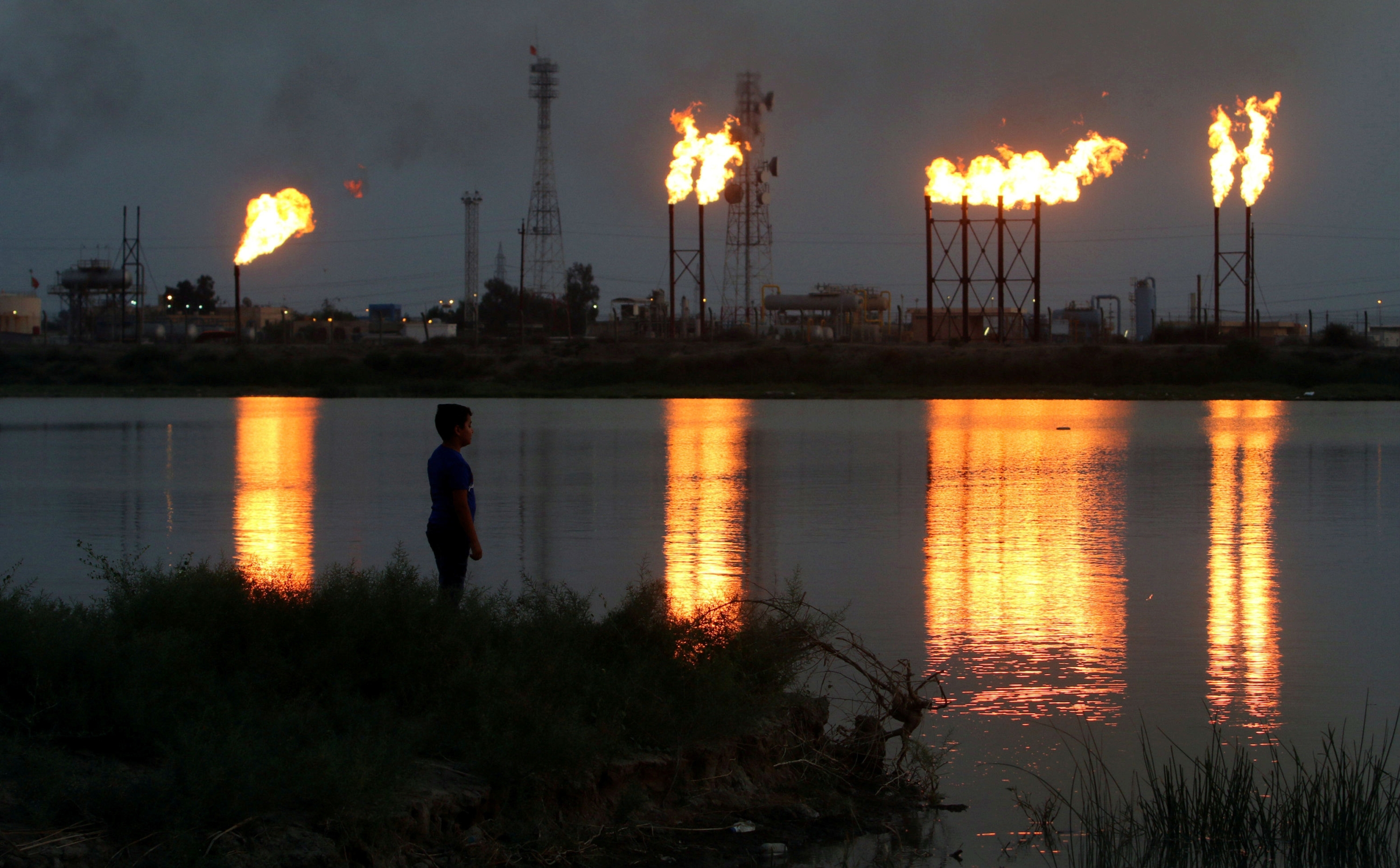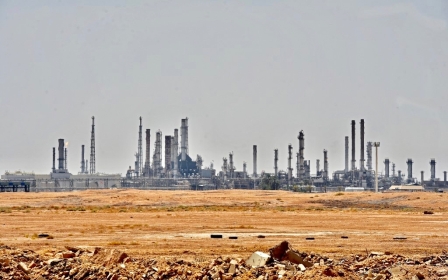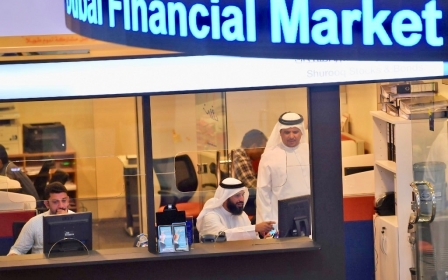Saudi oil price cuts spark biggest falls since 1991 Gulf War

Oil prices plunged by almost a third on Monday, the biggest drop since the 1991 Gulf War, as top exporter Saudi Arabia launched a price war after Russia blocked a bid to cut output.
In ferocious trading, both main crude contracts nosedived following Riyadh's shock move to slash prices after the alliance between oil-exporting group OPEC and its partners fell apart.
New MEE newsletter: Jerusalem Dispatch
Sign up to get the latest insights and analysis on Israel-Palestine, alongside Turkey Unpacked and other MEE newsletters
At a meeting last week, Saudi Arabia led a push by OPEC ministers to reduce output to counter the impact of the coronavirus outbreak - but it hinged on agreement from the group's partners, foremost among them Moscow.
However, Russia, the world's second-largest oil producer, refused to tighten supply and Riyadh then drove through the biggest cuts to prices in 20 years on Sunday, unleashing pandemonium on crude markets.
Saudi equities tanked more than nine percent in response, with oil titan Aramco losing 10 percent.
The collapse in prices could have far-reaching consequences, observers warned, from battering revenues in energy-dependent countries, to triggering the cancellation of oil exploration projects and even sparking global deflation.
Wall Street suspends trading
Wall Street's main stock indexes and the Dow Jones Industrial crashed by 2,000 points on Monday as the slump in oil prices and spread of the coronavirus triggered fears of a global recession.
Trading shut down immediately after opening for 15 minutes when the benchmark S&P 500 - a stock market index that measures the performance of 500 large companies - fell by seven per cent to its lowest since June 2019.
The slump triggered a 15-minute cutout, put in place to avoid a repeat of the "Black Monday" crash in 1987 when the Dow slumped nearly 23%.
The energy index plunged 17.3% to its lowest level since August 2004 and crude prices were on track for their worst day in three decades as Saudi Arabia and Russia moved to significantly ramp up production after the collapse of a supply cut agreement.
US President Donald Trump also blamed Saudi Arabia and Russia "arguing" over the price of oil and "fake news" for the slump in the markets.
'Huge shockwave'
"A 30 percent plunge in crude oil prices is unprecedented and is sending a huge shock wave across financial markets," Margaret Yang, an analyst from CMC Markets, told AFP.
In afternoon Asian trading, West Texas Intermediate was down about 30 percent, while Brent crude slipped 26 percent.
The collapse in oil prices added to pressure on equity markets, which were already being hammered by the virus outbreak.
Bourses across Asia fell heavily, with Tokyo closing more than five percent lower and Sydney down over seven percent.
Stock markets in the energy-rich Gulf states nosedived at the start of trading on Monday.
Trading was suspended on Kuwait's Premier index after it fell 9.5 percent, while the Dubai Financial Market dropped nine percent and the Abu Dhabi Securities Exchange shed 7.1 percent.
'Punishing Russia'
Saudi Arabia has cut its price for April delivery by $4 to $6 a barrel to Asia and $7 to the United States, with Aramco selling its Arabian Light at an unprecedented $10.25 a barrel less than Brent to Europe, Bloomberg said.
Jeffrey Halley, a senior market analyst at OANDA, said: "Saudi Arabia seems intent on punishing Russia."
Oil prices, he said, "will likely be capped over the next few months as coronavirus stalls economic growth, and Saudi Arabia opens the pumps and offers huge discounts on its crude grades."
Singapore's OCBC Bank said the global economy could be hit by deflation if crude stays around the $30 mark for an extended period, as oil prices play a key role in driving inflation.
This could encourage authorities to loosen monetary policy as they try to stop an uncontrollable deflationary cycle, the bank said.
Yang of CMC Markets said if prices fall to extremely low levels, Russia might ultimately come back to the negotiating table with OPEC and agree on an output cut to shore up markets.
The new developments are reminiscent of the oil price war that erupted in 2014 and sent oil prices crashing to less than $30 a barrel.
The price fall then battered revenues in the Gulf countries, forcing them to resort to austerity measures and borrowing to plug budget deficits.
Middle East Eye delivers independent and unrivalled coverage and analysis of the Middle East, North Africa and beyond. To learn more about republishing this content and the associated fees, please fill out this form. More about MEE can be found here.





